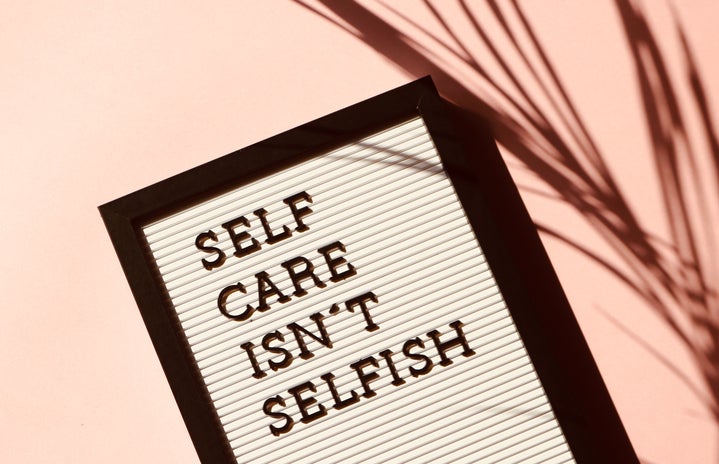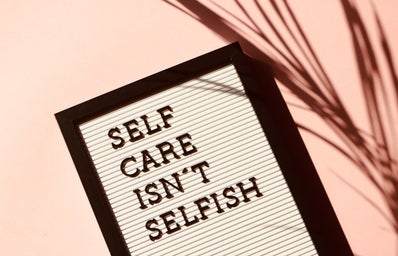Generation-treat-yourself.
Self-care. I’m sure many of us are familiar with this term, especially with social media platforms fiercely advocating for this act so much that sometimes, it could feel like we are being force-fed with this ideology. A quick search of this buzzword on YouTube easily generates content done by renowned creators, with one of the most widely watched being the series by Harper’s Bazaar. Big names in Hollywood industry such as Jessica Alba and Liv Tyler stand in their bathrooms, filmed against the backdrop of their luxurious marbled walls and walk-in showers, and the crystals of a chandelier peeking through, as they speak to the camera holding up their beauty products you definitely cannot find at the drugstore.
It is no surprise that these A-listers’ bathrooms could easily pass for those of luxury hotels, but self-care has peculiarly adopted its own aesthetic as well. Self-care tips are often accompanied by zeitgeisty elements such as yoga, clean-eating and anything and everything as long as it fits into a certain aesthetic. Self-care runs the risk of becoming more meaningless as we enter generation-treat-yourself, with carefully curated lifestyle choices to show off, rather than tune in with ourselves.
Evidently, products and services are often the only elements featured in self-care, but in fact, this only makes up one pillar of self-care in the rubric by International Self-Care Foundation, which provides a holistic approach to self-care often neglected and unfamiliar to many. When we look at the other pillars of self-care not captured in mainstream media – knowledge, mental well-being, physical activity, healthy eating, risk avoidance and good hygiene – we see that these would significantly benefit individuals with mental health conditions that go beyond aesthetics and romanticising a routine that really, is meant for the self rather than for the media.
What makes a person with depression (or any mental health condition in fact, although it definitely differs person to person) different from someone without, is the ability to function. For someone struggling with a mental health condition, getting out of bed is a daily mountain hike to get through. This means that what is deemed mandatory and taken-for-granted as day-to-day affairs, such as washing up, eating or simply taking a wee becomes a chore, an impairment, or even a significant challenge. Hence, self-care is all the more potent for these individuals who already lack self-care on a quotidian level, much less incorporate the aesthetics the self-care movement has become.
Here is how self-care looks for me, a day in the life of a depressed kid if you will. Even when the thought of keeping up with self-care culture is like a lifelong quest, these little steps do not fall short in rejuvenating me and pulling me out of a black hole:
- A Shower Quickie
Of course, we have to start with the very aspect mainstream media has fared in with flying colours – how can products help. Sometimes the thought of washing yourself could be overwhelming. Hence, I always have a simple set of products I turn to for the bare essentials – namely a toothbrush, toothpaste, body wash and face wash. Routine is especially important for an individual struggling with mental health as it takes some overthinking off their minds. As for hair, well, it does not hurt to leave it unwashed, especially when brushing one’s teeth is hard enough. Hence, I have a trusty little dry shampoo on the side that, I have to admit, gets me through a week long of oily scalp. I even get comments such as “Wow your hair looks so bouncy and fresh!”. I would recommend the KLORANE Dry Shampoo with Oat Milk that one can easily snag up at any household drugstore such as Watsons and Guardian.
You can use any of the current essentials you are already using, but one suggestion I would give is to integrate products with a minty touch to them for that extra boost of energy. For example, my current favourite body soap happens to be a newfound hidden gem – the Lifebuoy Matcha body wash. It straddles between the right balance of refreshing and comforting, as the body wash leaves a cooling film over the skin, as if all the dirt and grime of your stresses have been peeled off, yet the fragrance remains mild and not overpowering. A bonus for me is that being a tea addict, lathering this over my skin does exponentially uplift my mood. Hence, I would definitely suggest getting something personalised to your tastes.
2. Hydrate Yourself
Drinking water might sound laughable to many, but I’m pretty sure a good 50% of us don’t even drink water and the only fluids we obtain is from our favourite bubble tea order. However, for someone going through a depressive episode, the cool sensation of water trickling down one’s throat may just be the remedy to soften their demons. Even if it’s just a crack of sunlight, at the very least I find myself regaining strength and the negative thoughts gradually fade to neutral ones.
How I make sure I get plenty of hydration while feeling unmotivated, is to have a monstrously large water bottle by my bedside. In times where I find myself incapable of self-care, it feels like I am paralysed in bed. With such a huge bottle by my side, when I am feeling parched, at least there will always be a constant source of hydration well within reach.
Plus, research has linked dehydration as a contributing factor to depression. Of course, this is not to say depression is caused by dehydration;. However, research done by the University of Connecticut’s Human Performance Laboratory reveals that dehydration impedes your brain’s serotonin production, which is a “key hormone that stabilizes our mood, feelings of well-being, and happiness”. Evidently, being dehydrated would affect your mood and for one who is already vulnerable to subpar levels of serotonin, staying hydrated is all the more crucial.
3. Three Things I Am Grateful For
In a lot of self-care routines projected on mainstream media, journaling is not an uncommon sight, which has adopted a certain aesthetic — the bullet journal. However, a resonating quote by Oprah Winfrey goes, “What matters is how you feel inside, because feeling beautiful on the inside is key to looking good.” Particularly so for persons with depression, whose insides need to be taken care of before they can divert their attention to surface things like hand-lettering or creating the perfect layout.
Although cliché for many who have heard this method from every mental health professional ever to exist, I was forcibly thrust into assimilating this into my daily routine, thanks to my therapist toward whom I muffled complaints and whines at first. I was unwilling, but she made sure I was diligent in recording down three things I was grateful for, every day, on a plain A5 notebook that even had a cliché quote (“Believe you can and you’re halfway there.”) And if you thought it can’t possibly get any more predictable, the quote is set against a cringeworthy backdrop of a man standing victoriously on a mountain peak. With a notebook so “cringey”, it totally killed the vibe and with it took away the stress that would’ve come with writing in an aesthetic journal. I did not need to entertain exasperating thoughts like “What if my handwriting is too ugly?” “What if the words are not aligned with the title?”, which has, in the past, been a recipe for procrastination and a reason for not writing in the journal.
My recommendation would be to grab any of these budget-friendly notebooks — easily accessible in a lot of bookstores — because we want to make this as minimalistic as possible, and preferably unlined. Having a plain page allows you to write in any way your heart desires, away from thoughts of having to keep within the parameters of the lines. Grab any pen you can find, and place the book under your pillow, or on a bedside table. Before bed, simply reach over and jot down three things you are grateful for that day. And you could be as vague as you want, or as specific as you like. In my case, I’ve had days where I simply wrote “Grateful that I reached over to write this even though just a moment before I felt like the whole world was against me and there is no hope for me ever”, or it could be, “Grateful I felt less ugly today.”
You’re doing great, sweetie.
Depression is hard — any mental illness is. But small acts of taking care of yourself are so important. As much as we may still feel dark and empty inside, when we take care of ourselves, it reminds us, “Good on you for still trying. You have done well.” And sometimes, it is our own affirmations that give us the most strength.


